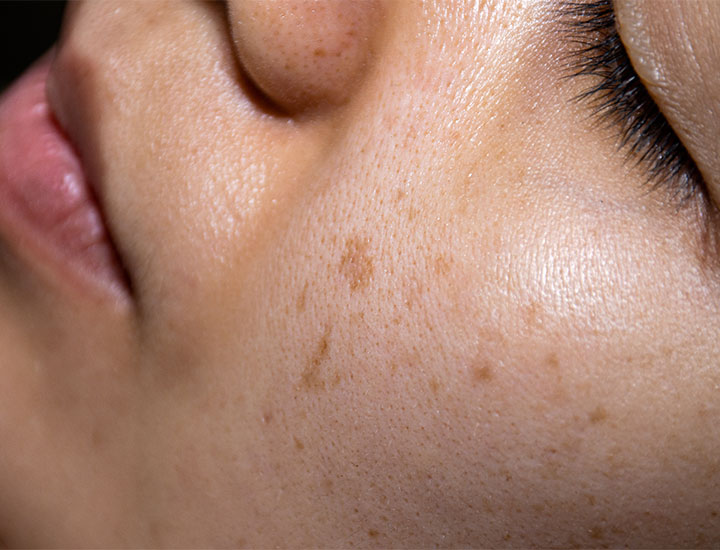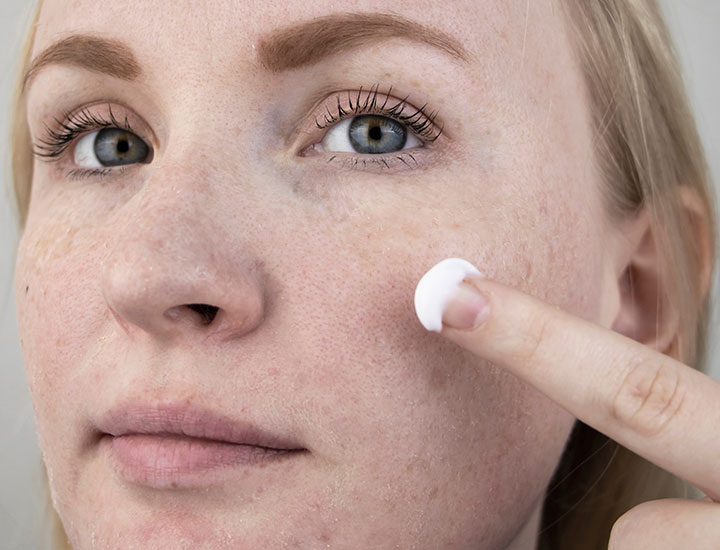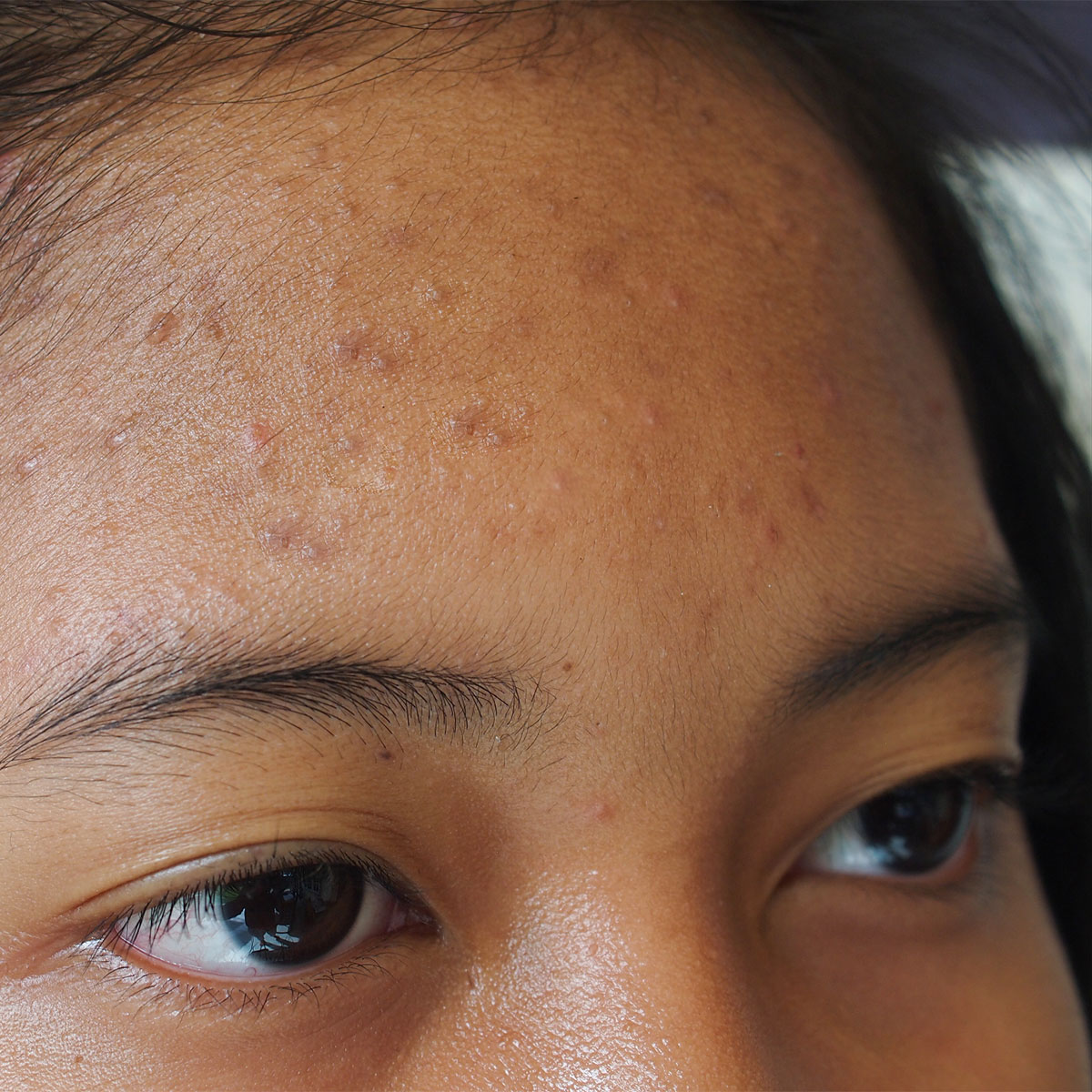It’s not just your imagination: your skin may have dark spots, otherwise known as melasma, that seem impossible to get rid of — no matter how well you wash, exfoliate, and use masks and serums. And that’s because these spots aren’t just surface pigmentation, but can be found below the skin’s surface, which means you often need a dermatologist’s assistance and their product and procedure knowledge to really tackle them and make a noticeable difference.
But it’s so easy and tempting to try and take matters into your own hands. You may start buying up products that are ineffective, or are too harsh for your skin. You may even book procedures in the hopes that they will cause your dark spots to fade. Before you spent another dollar, Dr. Simran Sethi, CEO/Founder of skin by Dr. Simran Sethi, shares her insights on the worst mistake you can make if you have dark spots — and what to do instead.


What Causes Dark Spots?
For some, dark spots appear out of the blue, it seems. For others, they become more noticeable during or after pregnancy, or while taking certain medications. Plain and simple: dark spots are caused by overactive pigment cells. And these cells can be turned way up in productivity after repeated exposures to UV light. But in addition to being the result of sun damage, they can pop up as a medication side effect and because of inflammation to the skin that occurs after acne, eczema, or psoriasis.

Avoid This Dark Spot Mistake
What’s the mistake you should avoid if you have dark spots? Using chemical peels to treat them.
“Chemical peels may help to reduce skin pigment but only work on skin with melasma when the melanin is in the epidermis, where the peel can penetrate,” Dr. Sethi says. “If the melanin is deposited in the dermis, the pigment is often too deep and challenging to reach through chemical peels.”
Not only can these treatments cost you money without having any positive outcome on your dark spots, but they may even make them worse.
“Chemical peels also contain a high dose of hydroquinone, retinol, lactic or glycolic acids, which can actually aggravate skin with melasma,” Dr. Sethi says. “This is caused by the skin barrier having already been compromised due to the melasma.”

A safe way to approach chemical peels for skin with melasma is first to strengthen the skin’s architecture and barrier, Dr. Sethi stresses. Moisturizing with lipid-rich serums and creams and under the supervision of a professional (in other words: don’t rush to the drugstore to get any old thing) is the way to go here.
“Chemical peels may also be more effective for patients after they have had more invasive, deeper medical skin treatments like Picosure laser and micro needling,” Dr. Sethi says. “These treatments will strengthen their skin and help bring pigment closer to the surface, making chemical peels safer and more effective.”

What are the best solutions for dark spots?
Look no further than a gold standard skincare ingredient: retinol. “Incorporating a retinol into your routine can drastically help with minimizing dark spots,” Dr. Sethi says. “Retinol is essential as it increases cell regeneration, the skin renewal cycle and erases photodamage and loss of skin proteins like collagen and elastin. This powerful agent has anti-aging and acne-fighting properties that can produce brightening results.”

Retinol can also reduce the look of wrinkles, spots, uneven skin tone, and inflammation. In addition, by increasing skin cell turnover and boosting collagen production, Dr. Sethi reminds us that uneven pigmentation can fade quickly, resulting in a brighter, even look.
But more isn’t always better when it comes to any skincare solution, including retinol.
“To gain the best results from retinol, you will want to avoid higher concentrations to ensure no skin barrier damage,” Dr. Sethi says. “Higher concentrations may cause sensitivity, so it’s important to stick to a medium-concentration that also hydrates the skin with lipids.”
If dark spots are a concern, visit a board-certified dermatologist before buying more products and booking more procedures to make sure your approach is targeted, personalized, and effective.


























